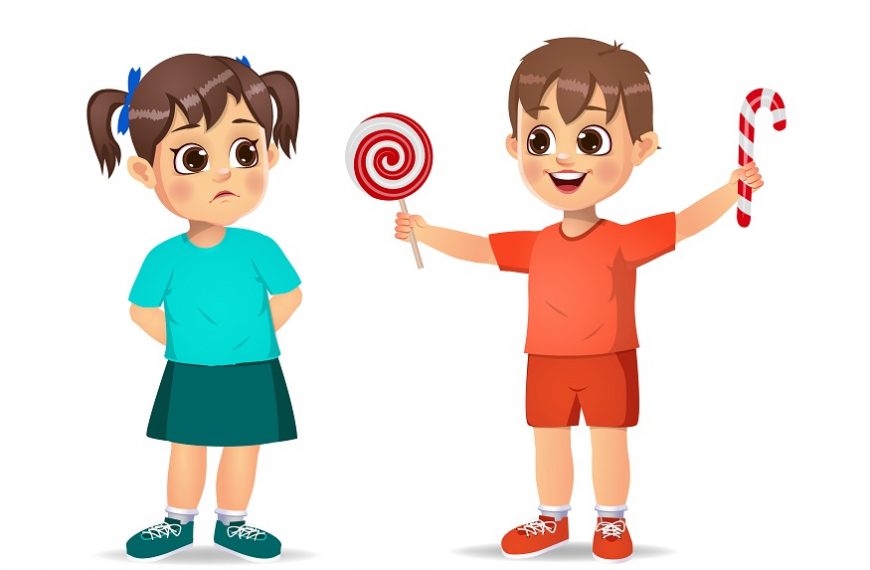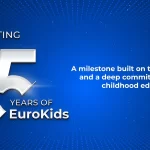Navigating Childhood Jealousy: Strategies for Managing Emotions
Navigating the thrilling journey of childhood, our little ones experience a kaleidoscope of emotions. Picture this: Your seven-year-old son, usually cheerful and friendly, suddenly grows sullen and withdrawn when you praise his younger sister for her drawing. Yes, this is a common facet of jealousy in kids. This emotion, though not pleasant, is a crucial aspect of their growing-up journey. Dealing with jealousy can feel like a Herculean task; however, it need not be a daunting endeavour if navigated wisely.
Before we delve into the strategies for managing jealousy, it is essential to understand what jealousy is. In essence, jealousy is an emotion that arises when a person perceives a threat to a valued relationship from a third party. In the context of children, it can be triggered by multiple factors such as favouritism, inequality, or the arrival of a new sibling. Understanding this emotion and its triggers is the first step in handling jealousy effectively.
Now, let’s explore five insightful approaches to handling jealousy in children…
Open Communication
Open communication forms the bedrock of managing jealousy in children. When children grapple with this intense emotion, it often becomes challenging for them to articulate their feelings aptly. Therefore, as parents, it’s essential to facilitate an open dialogue where kids feel safe to share their feelings.
Harnessing the power of perplexity here involves posing open-ended, intriguing questions to your child. These questions should aim to probe into their understanding of the situation and their feelings about it. For instance, ask questions like, “How did it make you feel when your sister got an extra scoop of ice cream?” or “Can you describe what you felt when your friend got a new toy, and you didn’t?” This method encourages your child to delve into their emotions and bring their feelings of jealousy to the fore.
In this approach, burstiness comes into play when these in-depth conversations are interspersed at different moments, in different contexts. By varying the setting and timing, you can ensure these discussions are not only reactive (after a jealousy-triggering event) but also proactive, helping to build emotional resilience in children over time.
Empathy and Understanding
Once your child starts expressing their feelings of jealousy, your response is crucial. Remember, empathy is the key. A dismissive approach might discourage your child from sharing their feelings in the future.
Instead of criticising or belittling their emotions, validate their feelings. Replace phrases like, “You shouldn’t be jealous of your brother,” with more understanding responses like, “I see that you feel jealous when your brother gets a new toy. It’s perfectly normal to feel this way sometimes. But let’s explore how we can manage these feelings better.”
This approach uses perplexity to stimulate your child’s curiosity about their feelings and possible coping mechanisms. Burstiness is achieved by creating intense emotional engagement, showing your child that their feelings are acknowledged and understood.
Encouraging Emotional Literacy
Emotional literacy is the ability to recognize, understand, and appropriately express one’s emotions. This skill is crucial in handling jealousy. Picture books, movies, or everyday situations can serve as perfect tools to illustrate various emotions, including jealousy.
The perplexity in this approach lies in engaging children with diverse visual or storytelling media, stimulating their thoughts about emotions. For instance, a story about a jealous rabbit might trigger a conversation about jealousy, its causes, and effects. Burstiness is reflected through intense emotional engagements—discussing different emotions and their dynamics in various scenarios.
Teaching Conflict Resolution Skills
Recognizing feelings of jealousy is a pivotal first step. Still, children should also be equipped with the necessary tools to handle these emotions effectively. This is where conflict resolution skills come into play. These skills empower children, not just to manage their feelings of jealousy but also to navigate future situations that might stir similar emotions.
Role-playing exercises can be an invaluable tool for this purpose. Craft scenarios that echo real-life situations where your child might feel jealous—perhaps a friend receiving praise or a sibling getting an extra cookie. Guide them through their emotional response and discuss various ways they could handle such situations.
Teaching conflict resolution skills helps children become more adept at managing their feelings of jealousy. Moreover, it prepares them for future situations, enhancing their emotional intelligence and fostering healthier interpersonal relationships.
Fostering Gratitude and Generosity
Gratitude and generosity, two simple yet potent virtues, can serve as powerful antidotes to the green-eyed monster of jealousy. The approach here is twofold: encouraging your child to embrace gratitude, appreciating their unique gifts and experiences, and nurturing a spirit of generosity that sees joy in sharing and giving.
It is crucial to help children shift their focus from what they lack to cherishing what they have. Teach them to celebrate their talents, their possessions, the love they are enveloped in, and the small yet significant victories in their life journey. A gratitude journal can be a useful tool for this purpose, where they can pen down something they are thankful for each day. It could be as simple as a sunny day or as profound as a loving family.
To sum up, dealing with jealousy in kids is akin to walking through a labyrinth. Yet, with the tools of open communication, empathy, emotional literacy, conflict resolution, and the cultivation of gratitude and generosity, it becomes less of a formidable task. Just as your son, initially jealous of his little sister’s praised artwork, might eventually come to express his feelings and find joy in her achievement. This powerful transformation not only addresses jealousy but also aids in shaping emotionally intelligent and resilient individuals for the future.
On this note, EuroKids preschool takes pride in fostering an environment where children are guided through their emotional journey with care and understanding. At EuroKids, we believe that acknowledging and dealing with feelings such as jealousy is as crucial as academics in shaping well-rounded personalities. We invite you to join the EuroKids family and experience a holistic approach to nurturing your child’s emotional and intellectual growth. Head over to the EuroKids centre nearest to your house today!

















